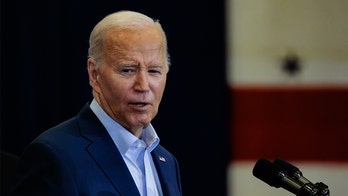In a stunning turn of events Thursday night where tempers appeared to boil over on the floor, Senate Majority Leader Harry Reid and many Senate Democrats, through a complicated bit of legislative jiu-jitsu, managed to change the rules of the body, in a manner similar to the so-called “nuclear option.”
The vote centered around a procedural maneuver known as “a motion to suspend Senate rules.”
The tactic was an attempt by the minority to force what would have been a symbolic vote on President Obama’s jobs plan. It would have required 67 votes to pass, a target Senate Republicans were unlikely to meet.
However, upset by what he felt was an effort to filibuster by amendment a bill dealing with alleged currency manipulation by the Chinese that had passed a 60 vote threshold twice, Reid ruled the motion out of order. The chair, which is also controlled by Democrats, agreed. McConnell objected to that ruling and asked for a vote to decide the issue. That vote fell in Reid’s favor by a mostly party line vote of 51-48 (Ben Nelson, D-Nev., voted with the Republicans)
As a result of Thursday’s maneuvering, the minority will no longer be able to offer such motions after cloture has been invoked. In the past, the measure has been used by the minority to delay proceedings or force tough votes for the majority.
No motion to suspend has actually reached the 67 vote threshold since 1941.
Republicans were apoplectic that Reid brought a bazooka to a knife fight.
“You were going to win on this bill -- you didn't need to jam us,” said Minority Leader Mitch McConnell, R-Ky., “America doesn't need less debate, it needs more debate.”
Viewed as a tool of the party out of power to slow proceedings or force tough votes, the elimination of the motion to suspend may come back to haunt Democrats in the future.
While the moves were the same as the so-called “nuclear option,” this battle dealt with amendments, not filibusters.
The Senate will try to vote on the currency bill on Tuesday.




